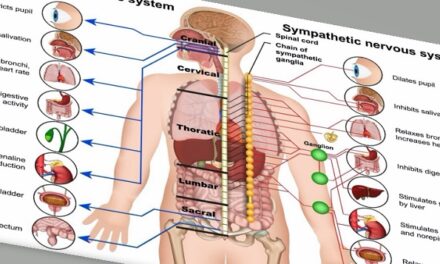As we enter the new year, many will be reevaluating their diets in hopes to change and maintain a healthy lifestyle. Commonly, the focus will be on improving physical health. Less often is the focus on how improving one’s physical health can improve their mental health, but perhaps it should be!
New research is discovering connections to mental health and diet, similar to what we already know about diet and physical health. Recent research has recognized the impact food intake has on both our thoughts and feelings. It has been found that eating patterns that are low in essential nutrients have been linked to less-than-optimal brain functioning and is a contributing factor to poor mental health and behaviors.
Food and the Brain
One way mental health is impacted by diet is through biochemical activity. Diet is suggested to be one of the largest influences on how efficient the body’s biochemical system functions. Biochemical activity is affected by the nutrients absorbed from the foods we consume. Emotions are produced and reinforced by these activities within the brain. Protein is another component to brain health. Protein contains amino acids, which make up the chemicals your brain needs to regulate your thoughts and feelings.
Wellbeing
Another benefit to focusing on diet to improve mental health is for those who are seeking psychotherapy treatment. A balanced diet can promote optimum level of functioning and an increased likelihood a person will respond to psychotherapy intervention. This means that a treatment plan that focuses not only on conventional methods of treatment but also focuses on diet can offer the most benefit.
Diet is just one component to preventing impaired emotional health, and increasing the likelihood of overall wellbeing. It has been determined that overall feelings of well-being can be improved when the body is provided with sufficient quantities of complex carbohydrates, essential fats, amino acids, vitamins, minerals and water through a balanced diet. In a similar vein, poor diets have been closely linked to less-than-optimal mental health. These are: diets low in protein, infrequent meal consumption, diets high in refined carbohydrates, diets low in omega 3 fatty acids, dehydration and the intake of artificial stimulants (alcohol, drugs, caffeine, nicotine).
Depression
Foods high in omega-3 fatty acids, have been shown to help reduce symptoms of schizophrenia, depression, attention deficit hyperactivity disorder, and other mental disorders. This is achieved because of the effect omega-3 fatty acids have on the production of neurotransmitters, chemicals that enable communication between brain cells, such as Serotonin. Serotonin is a key neurotransmitter responsible for our mood. Since Omega 3 also strengthens cell membranes and facilitates communication between nerve cells, it also boosts learning and memory. Omega 3 fatty acids can be found in wild cold-water fish, seaweed, and chicken fed on flaxseed and walnuts or can be taken as a supplement, although intake from food is preferred. The American Psychiatric Association is considering Omega-3 fatty acids as a complementary treatment for depression.
Omega 3 fatty acids, B12 and Vitamin D have been proven to have anti-inflammatory benefits on the body. For this same reason these same nutrients have been well researched for their positive impacts on symptoms of depression. A study in the American Journal of Clinical Nutrition found that women who ate more vitamin D–rich foods had a lower risk of depression than women whose intake was less.
Anxiety
There is strong evidence that confirms a link between the intake of stimulants and an increase in anxiety. These stimulants include: coffee, tea, sugar, chocolate, energy drinks and soft drinks. For those that suffer from anxiety, it may be important to examine the amount of consumption and pay close attention to the possible correlation of symptoms an individual may be experiencing. Limiting these stimulants or paying attention to the time of day they are being consumed can help alleviate the duration and/or severity of anxiety experienced.
Deficiencies
Many studies look at the impact of deficiencies of vitamins and minerals on mental health, as often these impacts replicate symptoms of mood disorders. It has been discovered that low vitamin B levels can mimic symptoms of depression. B vitamins are essential for the body to create Serotonin, as mentioned earlier, a neurotransmitter needed to maintain homeostasis and to manage stress. Individuals who follow a vegan or vegetarian diets are often low in B vitamins. It is important to check with your doctor to test your vitamin B levels and take a supplement if needed.
Recently, magnesium has been found to be a common deficiency that many are experiencing. This is due to the current food processing practices. Magnesium is the one of the first minerals that is destroyed during food processing. Therefore, magnesium deficiency symptoms are common among many and can replicate as symptoms of depression, apathy, insomnia, irritability and/or anxiety.
Western Diets
Western diets are high in consumption of sugar, fried foods and processed meats, and have been correlated to an increased risk of depression. Studies have also shown that diets rich in olive oil, fish, nuts, legumes, dairy products, fruits and vegetables have been positively associated with a decreased risk of depression and may also help to improve symptoms of various mental health struggles when paired with best practice interventions.
Suggested Diet
An effective diet found to support optimum mental health is the Mediterranean Diet. This diet emphasizes vegetables, fruits, legumes, nuts, beans, cereals, grains, fish, and unsaturated fats such as olive oil. This diet also limits the amounts of red meat and foods from dairy. A balanced diet of this kind is beneficial for the healthy functioning of the brain. There are many benefits to adhering to a diet of this kind, including protecting against depression symptoms later in life. A study discovered that those who followed a Mediterranean-type eating pattern were almost 50 percent more likely to age in a healthful manner, including preserving cognitive function.




